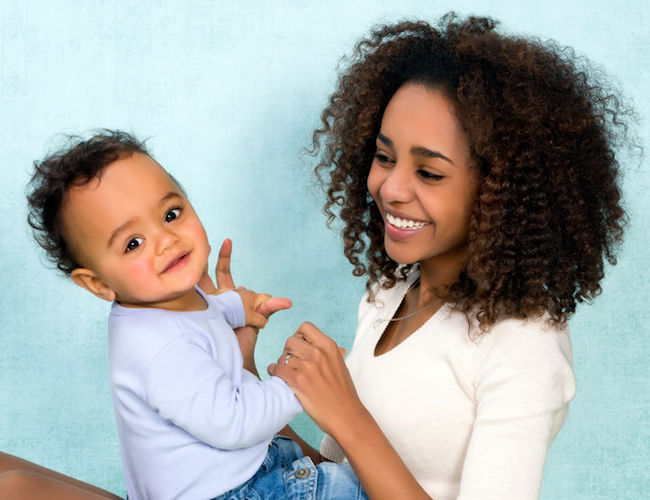Tips to encourage your baby to talk
Learning to talk is one of the most complex aspects of child development, explains occupational therapist and founder of Clamber Club- Liz Senior.
In her book, Growing Up With A Smile, which she co-wrote with Karen Hopkins, Liz explains that babies learn about language and can understand those around them before they learn to talk.
Your little one will listen and respond to changes in sound and rhythm, as well as pitch – how high and low your voice is. Therefore, they learn to understand language and how words sound, long before they learn to speak.
When does talking start?
Liz says that between your child’s first and second birthday, they’ll go from saying virtually no words at all to having a simple conversation. “During their second year of life, your child will learn about 200 words.”
However, from the time your baby is six months old, they will start learning simple words such as “mama”, “dada”, etc. And by the time they reach 18 months, your child may start to form two-four-word sentences.
Why babbling is so important
In a recent study published in the journal Developmental Science, researchers found that babbling - when babies attempt to talk and use a variation of sounds and expressions - plays an important role in the development of language and communication.
This is because when your baby babbles to you and you show excitement, this simple act encourages social interaction and understanding between you and your child. This important interaction helps your child learn more about speech and language, how words sound, how they’re formed, etc.
How to encourage your child to talk
• According to a child development report by Unicef, it’s a good idea to tell your child the names of things and people you see around you daily. They will soon try to form words around the people and objects they see.
• The report also states that you should use every opportunity to show that you’re listening to your child and have a conversation with them.
• You should also ask your child as many questions as possible and praise them for trying to answer you. This interaction lays the foundation for talking later.
• “When they babble, hold them up to the mirror and encourage them to make sounds while they watch their mouth move,” says Liz.
• Use facial expressions and descriptive words during your daily routine and tell them what you’re doing when you bath, dress and feed them, when you go for walks, to the shops etc.
• Show them that language is a two-way communication.
• “Be interested” in what your baby has to say and show them that language involves two-way communication.
• Language and talking develops as children play and interact with each other too. So, it’s wise to encourage social interaction and play dates with others.
• Research shows that the more exposure your child has to the world outside the home, the broader their language experiences will be, explains Liz.
IMAGE CREDIT: 123rf.com

